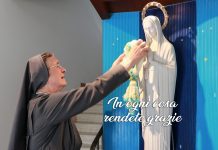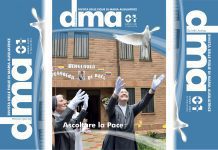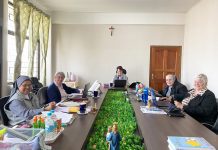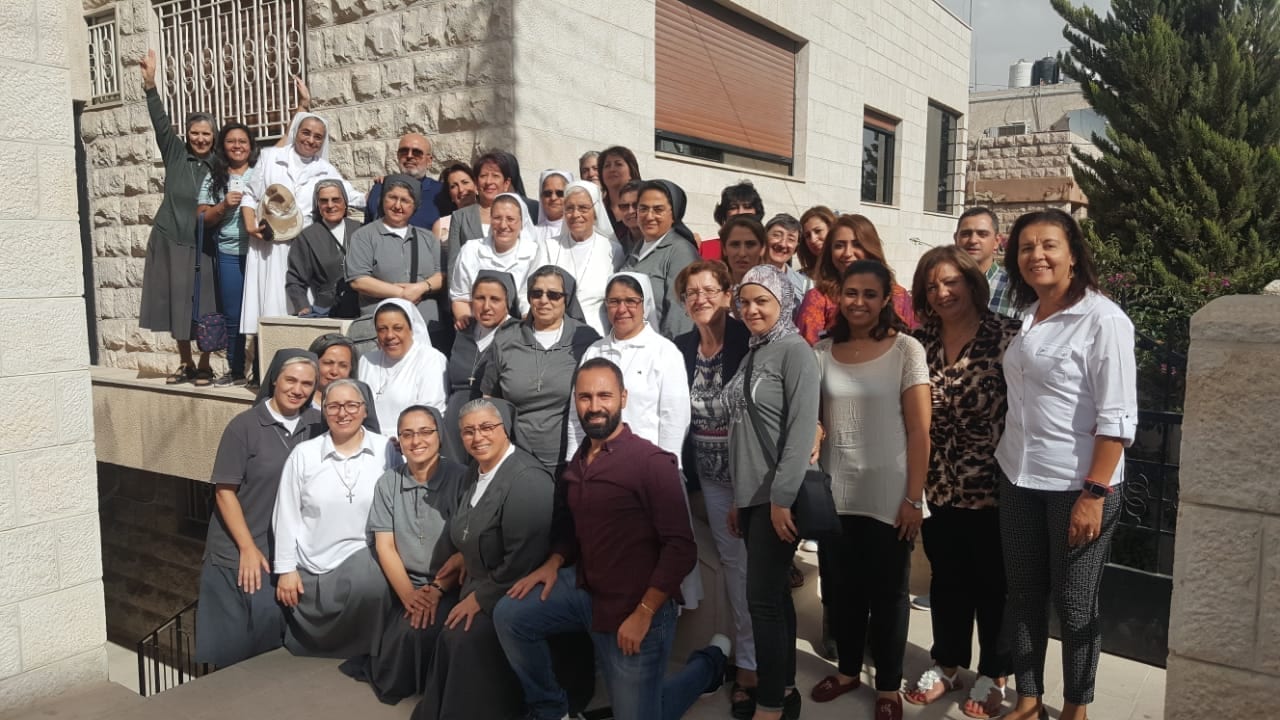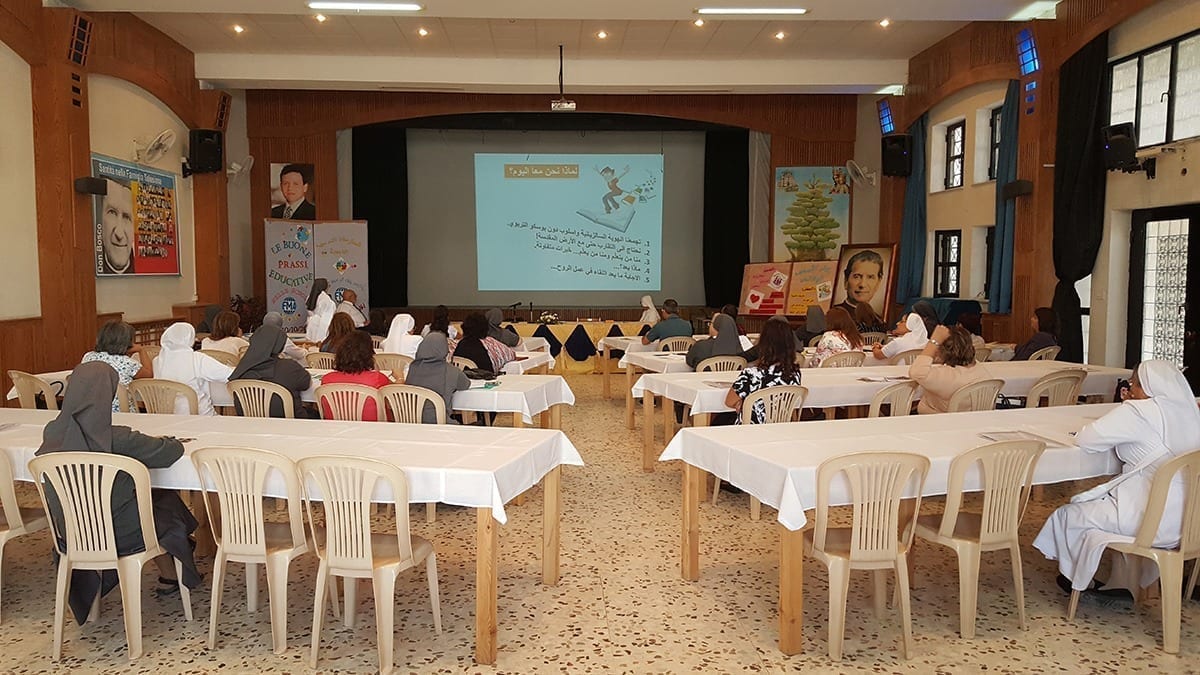Amman (Jordan). From 17 to 19 October 2018 a conference was held in the Amman Provincial House in Jordan, attended by the FMA and lay Principals of all the Schools of Jesus Adolescent Province (MOR), and the leaders of the different scholastic cycles. The aim of the conference was to share different educational practices and to seek together the most appropriate ways to respond to the needs of children (and adolescents) in the current context of Egypt, Lebanon, Palestine, Israel, Syria, and Jordan.
His Excellency Msgr. Wiliam Shomali, Bishop of Jordan, referred to the Good Shepherd during his presentation of the characteristics of every Principal who animates and guides Catholic schools in the Middle East; a person who has a vision, a project for good, who knows how to collaborate and does not work alone, who tries to achieve the objectives set by the Educating Community; a person who creates a family atmosphere by encouraging the expression of all positive skills and energies.
The Provincial, Sr. Lina Abou Naoum, opened the conference proceedings by saying: “Each of those present is called to share the educational practices of the school in which it operates, no matter if it is small or very large; the important thing is to listen to each other, to share, and to look for new ways together. We are a family that shares the wealth it has to support each other and be supported by the others.”
The topics that oriented the conference were: knowledge of the schools; good educational practices of the MOR schools; the search for a future vision, proposals for the future, and a communication network.
The presentation of the schools took place in a creative way, bringing out convergences despite the diversity of countries, cultures, and social situations. The richness was noted, as well as the challenges to be faced with courage such as: a complex society where the cultures of two peoples intertwine; the consequences of wars and the economic crisis that negatively affect the growth and psychology of children, young people, and adults, educators, and families; to educate to dialogue, peace, and the acceptance of the other as possibilities for change in the Middle Eastern world; resources to look for in order to continue supporting peoples; the good academic level achieved in FMA schools to be supported with continuous updating in order to be attuned to the youth world; the educational work to be carried out with creativity to involve the young people in activities, initiatives, and decisions so that the sense of belonging grows in them.
The group work identified some existing convergences: annual festivals that are celebrated in all the schools, cultural and sporting activities that encourage pupils to offer their creativity; charitable activities for older people, for those with disabilities, for the sick; summer camps that create a family atmosphere; courses with specialists for the human growth of students; attention, support, and love for children in need of special care; the use of technology, formation, and updating of the teaching and administrative staff.
The visit to the Holy Land School directed by the Franciscans was enriching for the participants. Father Rashid Mistrih, head of the Catholic Schools Committee in Jordan, led the group and gave a conference in which he highlighted the figure of the educator and the importance of the collegial management of educational works.
During the conference, Sister Elena Rastello of the Youth Pastoral Sector, presented the global path of the Catholic Educational Centers and the networks of formal education coordination that are growing in the FMA Institute. Sister Soad Hbaika recounted her experience at the meeting in Perugia with the FMA Europe School, emphasizing the commitment to educate through social competencies, so that schools become ever more places of peace and respect for the dignity of each person, and the right to build a better future in every country in the Middle East.
On the final day of the conference, the participants identified steps for the future path: training and updating through meetings of the teaching and administrative staff at the level of each country and of the MOR Province; collegial management of the works and promotion of associations and volunteer work; openness to different cultures promoting the spirit of initiative, dialogue, acceptance of the other, and constructive coexistence; creation of a website to share the life of the Educating Communities and to promote the exchange of materials. The provincial Sr. Lina Abou Naoum encouraged each participant by saying: “We think, plan, and work together, translating decisions into daily life with so much joy and educational passion. The path of the MOR Schools is now well traced out, the friendship between the various leadership groups of the schools of the various Countries is established “.
Here are some resonances of the participants: “I feel that my mission in the school of Don Bosco is a call from the Lord”; “My belonging to a Salesian house strengthened my citizenship and my love for my country”; “I must love if I wish to succeed in the educational field”; “In our educational style we take care of the human person”.
On the following two days, October 20 and 21, the pastoral team of the whole MOR Province gathered to elaborate the Pastoral Project of the MOR Province.



